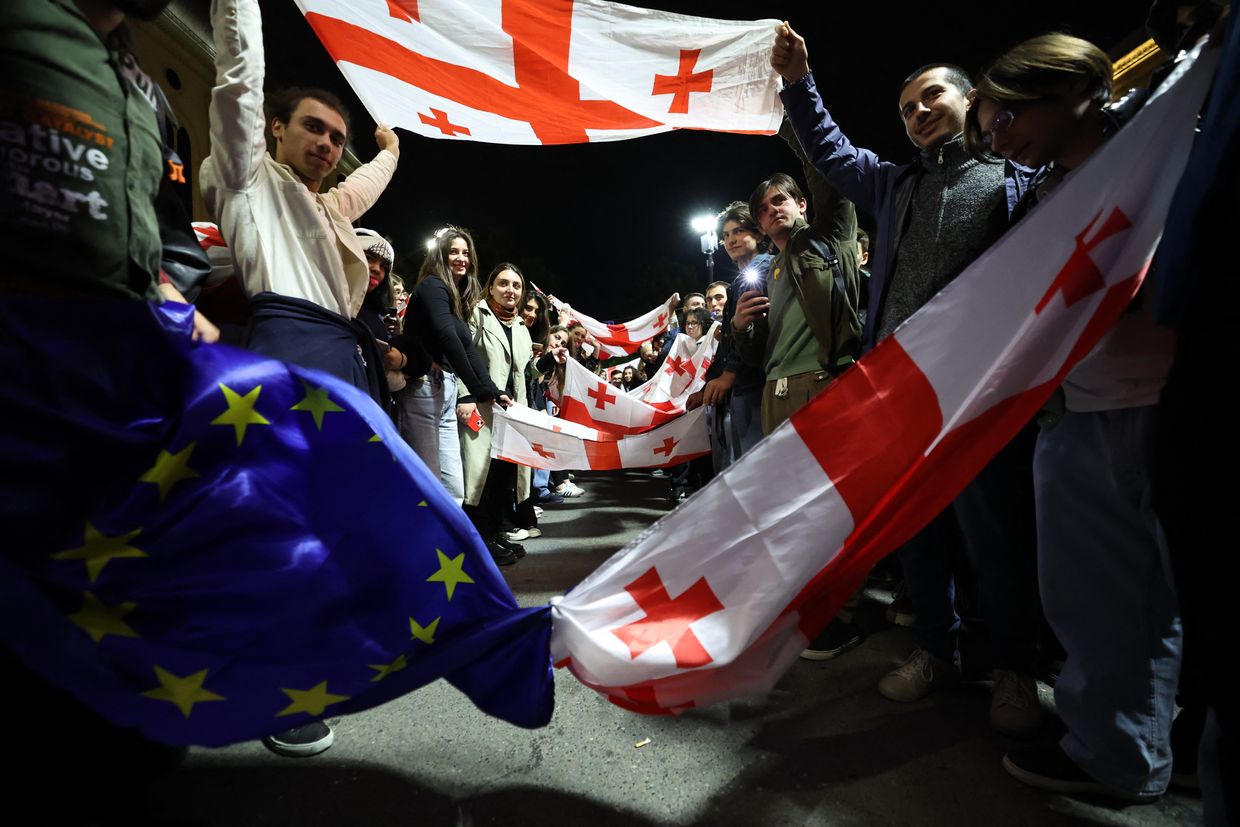What Ukraine can expect from the European Parliament’s new term
The European Parliament’s new term should be marked by a strong commitment to Ukraine, ensuring its path to EU membership remains unimpeded.

(L-R) European Parliament President Roberta Metsola, General Secretariat of the Council Therese Blanchet, Bulgarian Prime Minister Dimitar Glavchev, Italian Prime Minister Giorgia Meloni, and Hungarian Prime Minister Viktor Orban (C) attend a European Council Meeting in Brussels, Belgium, on June 27, 2024. (Pier Marco Tacca/Getty Images)
The European Parliament has long upheld democracy, human rights, international law, and peace. This tradition has been especially evident in its robust response to Russia’s aggression against Ukraine. As the Parliament enters its 2024-2029 term, we examine its political stance over the past two years and assess what Ukrainians can expect moving forward.
Following Russia’s unprovoked invasion of Ukraine in February 2022, the European Parliament responded decisively. It condemned the war in the strongest terms, decrying atrocities such as the deportation of Ukrainian civilians, including children, and the abuses in so-called "filtration camps." It also rejected Russia’s illegal annexation of Ukrainian territories and denounced the sham referendums held in occupied regions.
In November 2022, the Parliament designated Russia as a state sponsor of terrorism and condemned its use of terrorist tactics. It also recognized the Holodomor, the Soviet-orchestrated famine of the 1930s, as genocide.
The Parliament consistently pushed for accountability, advocating for the establishment of a special international tribunal to prosecute Russian leaders for war crimes. It also passed multiple resolutions supporting Ukraine’s sovereignty and calling for closer EU-Ukraine ties, including a June 2022 resolution urging the European Council to grant Ukraine EU candidate status. These actions enjoyed widespread support, with votes typically ranging from 470 to 520 in favor out of 705 members.
Despite predictions of upheaval, the 2024 European Parliament elections did not result in dramatic changes. While Euroskeptic and far-right parties gained ground, they remain a minority. Pro-Ukraine groups — including the center-right European People’s Party (EPP), the center-left Socialists, the liberal centrist Renew Europe, and the Greens — retain a commanding majority of over 400 seats out of 720.
The new Parliament reaffirmed its commitment to Ukraine in its first resolution of July 2024, calling for continued military aid and condemning Hungarian Prime Minister Viktor Orbán’s visit to Moscow. It also emphasized the need to maintain and expand sanctions against Russia and Belarus. This resolution passed with 495 votes in favor, 137 against, and 47 abstentions.
Subsequent resolutions underscored this pro-Ukraine stance. In September 2024, the Parliament urged lifting restrictions on Ukraine’s use of Western weapons against Russian targets. In October, it approved a 35-billion-euro ($36.9 billion) loan to Ukraine, financed by revenues from frozen Russian assets. By November, it demanded stricter sanctions against Russia’s shadow fleet, which is involved in circumventing sanctions on crude oil.
These actions highlight the Parliament’s unwavering support for Ukraine’s sovereignty, territorial integrity, and EU integration aspirations. This support is expected to translate into backing for Kyiv’s funding needs, accession steps, and favorable political resolutions.

Several key factors will shape the European Parliament’s future actions regarding Ukraine:
First, reforms in Ukraine. The Parliament will closely monitor Ukraine’s progress on economic, political, and judicial reforms, particularly anti-corruption efforts. The European Commission’s regular reports on these reforms will significantly influence parliamentary decisions.
Second, EU public opinion. Public support for Ukraine’s EU integration varies across member states. War fatigue, migration challenges, and shifting media narratives could sway public sentiment, influencing how Members of the European Parliament (MEPs) vote on Ukraine-related issues.
Third, EU relations with Russia and global powers. While an EU-Russia rapprochement seems unlikely, changes in U.S. foreign policy — such as a friendlier stance toward Russia under a potential Trump administration — could lead the European Parliament to adopt a firmer stance against Moscow.
Fourth, economic cooperation. Deepening economic ties through the EU-Ukraine free trade agreement will likely bolster support for Ukraine within the Parliament, as successful trade integration strengthens mutual interests.
And fifth, the war’s outcome. The trajectory of Russia’s war against Ukraine remains the most significant factor. Developments on the battlefield, whether advances, ceasefires, or escalations, will directly impact parliamentary priorities and decisions.
The European Parliament is poised to maintain its strong support for Ukraine’s sovereignty and EU integration ambitions. However, this commitment will depend on Ukraine’s ability to implement necessary reforms, shifting public opinion within the EU, evolving geopolitical dynamics, and the outcome of the war. Over the next five years, the Parliament must navigate these challenges while upholding its principles of democracy and international law.
Editor’s Note: The opinions expressed in the op-ed section are those of the authors and do not necessarily reflect the views of the Kyiv Independent.
Stay warm with Ukrainian traditions this winter. Shop our seasonal merch collection.













